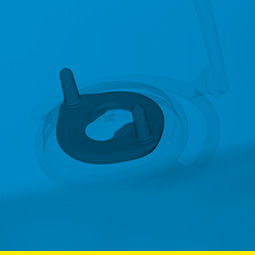The goods must be inspected carefully immediately after delivery to the Customer. They are considered to be approved by the Customer as far as visible defects or other defects that would have been detectable in a prompt and careful inspection, if a written notice of defect is not received by the Supplier within seven working days after delivery. As far as other defects, the goods are considered to be approved by the Customer if the notice of defects is not received by the Supplier within seven working days after the moment in which the defect became apparent; if the defect was apparent in normal use at an earlier time, then this earlier time is decisive for the start of the period for notification of defects. If defects and/or damages are detected, then a written damage report must be requested from the carrier and, after immediate consultation with the Supplier, an insurance surveyor must be commissioned to make the required assessments when relevant.
















